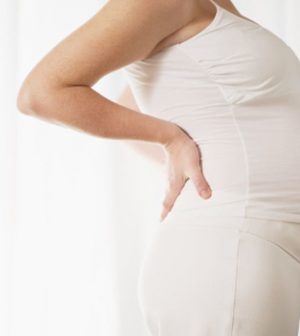- Recognizing the Signs of Hypothyroidism
- 10 Strategies to Overcome Insomnia
- Could Artificial Sweeteners Be Aging the Brain Faster?
- Techniques for Soothing Your Nervous System
- Does the Water in Your House Smell Funny? Here’s Why
- Can a Daily Dose of Apple Cider Vinegar Actually Aid Weight Loss?
- 6 Health Beverages That Can Actually Spike Your Blood Sugar
- Treatment Options for Social Anxiety Disorder
- Understanding the Connection Between Anxiety and Depression
- How Daily Prunes Can Influence Cholesterol and Inflammation
Common Complication of Pregnancy Tied to Higher Stroke Risk Later

Having preeclampsia during pregnancy significantly increases a woman’s future risk of stroke, researchers say.
Preeclampsia happens when a woman with previously normal blood pressure suddenly develops high blood pressure, protein in her urine or other problems after 20 weeks into pregnancy. The condition occurs in about one in 25 pregnancies in the United States, according to the U.S. Centers for Disease Control and Prevention.
The new study findings suggest that women who’ve had preeclampsia require monitoring of their heart health as they age, according to the authors.
“Our study strongly suggests that, for women who have a history of preeclampsia, physicians should consider aggressive treatment of midlife vascular risk factors, including high blood pressure and elevated cholesterol and glucose [blood sugar] levels,” said Dr. Adam de Havenon, lead author of the study and an assistant professor of neurology at University of Utah Health.
“Doing this could potentially reduce the risk of these women having strokes,” de Havenon added in a university news release.
Untreated preeclampsia can cause serious complications for mother and child, the study authors noted.
Prior research has found an association between preeclampsia and stroke, but did not follow women as they got older. Nor did it assess stroke risk factors such as high blood pressure, cholesterol, blood sugar or smoking.
This new study included more than 1,400 white women who were followed for an average of 32 years after giving birth. Of those, 169 had preeclampsia during pregnancy.
The women who had preeclampsia were more likely to be younger, smoke, have higher diastolic blood pressure and receive treatment for high cholesterol than the others being assessed.
Over the follow-up period, 231 of the women in the study had a stroke. After accounting for other risk factors, the University of Utah Health researchers concluded that preeclampsia was independently associated with about a 3.8-fold higher risk of stroke later in life.
The study was published online April 26 in JAMA Network Open.
Further research is needed to learn more about the connection between preeclampsia and stroke. But it appears that preeclampsia may cause more long-term blood vessel damage than previously thought and put women at higher risk for stroke as they get older, according to the researchers.
Study co-author Dr. Lauren Theilen, an assistant professor of obstetrics and gynecology, said, “Preeclampsia is a complicated disease involving injury to the lining of the blood vessels. We used to think it just happened while you were pregnant, then it healed afterward. But preeclampsia may be doing lasting damage to the blood vessels.”
More information
The American Academy of Family Physicians has more on preeclampsia.
SOURCE: University of Utah Health, news release, April 26, 2021
Source: HealthDay
Copyright © 2026 HealthDay. All rights reserved.










